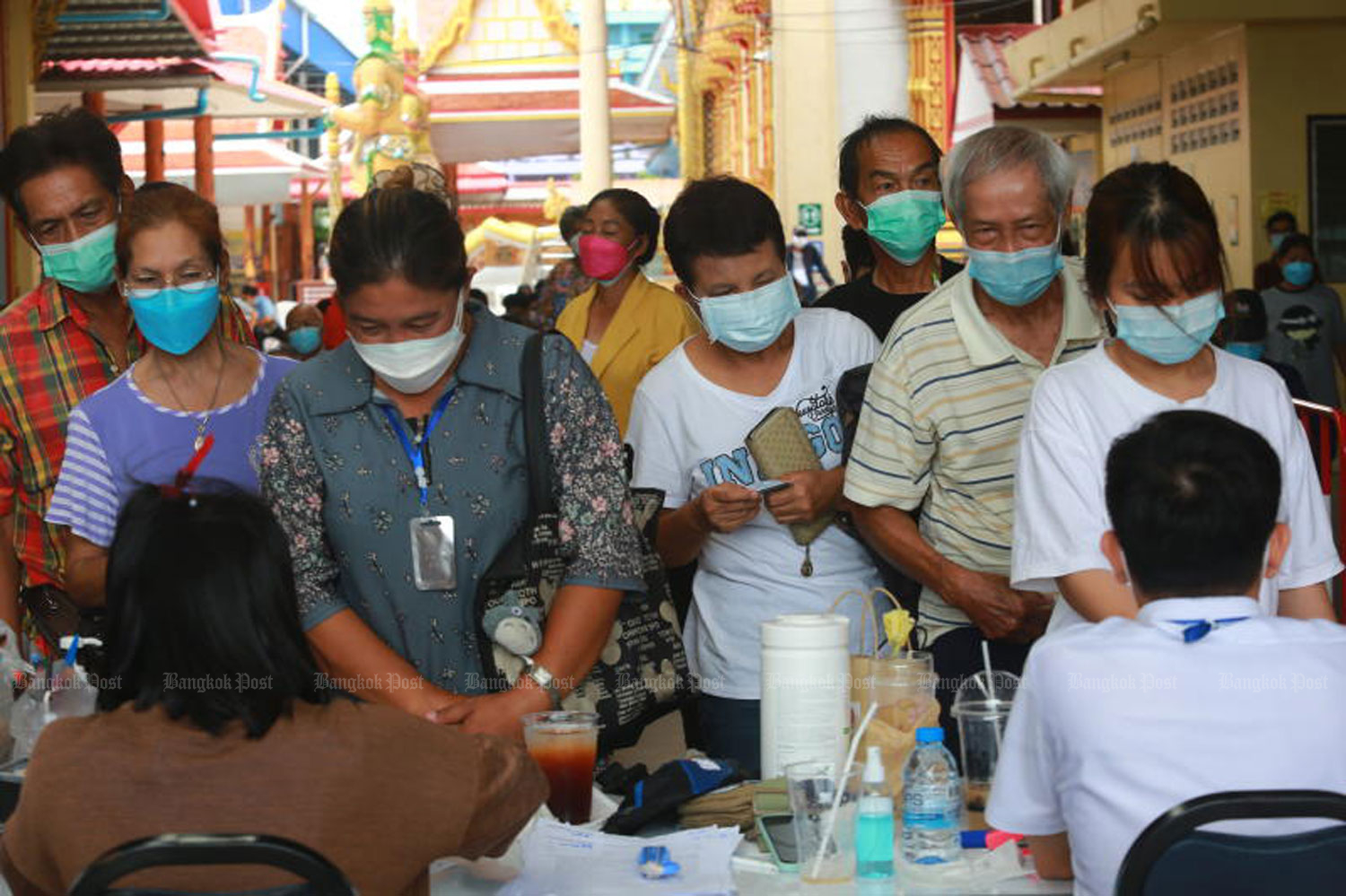
Thai people are most interested in the number of infections and deaths when following reports about the Covid-19 pandemic, according to a survey by the Suan Dusit Rajabhat University, or Suan Dusit Poll.
The poll was conducted online on 1,270 people throughout the country between Aug 9-12 to gauge public interest in figures and statistics related to the Covid-19 pandemic.
Asked which channels they use to get information about Covid-19, 71.84% said they watch television news; 70.49% use social media such as Facebook, Twitter, Instagram and Line; 56.49% use news websites and news apps; 45.17% get information from friends, relatives and family members; and 37.74% from the Centre for Covid-19 Situation Administration.
Asked how much time each day they spent following the situation, 40.95% said about 30 minutes; 31.98% one to two hours; 13.73% two to five hours; and 13.34% more than five hours.
Asked which statistics they were particularly interested in, 92.33% chose the numbers of infections and deaths; 65.96% the number of people who had been vaccinated; 60.87% the numbers of new infections and patients who had recovered, for comparison; 50.75% the number of patients in serious condition; and 48.14% the number of beds available for patients.
Asked why they thought the statistics were important, 89.29% said they illustrated the trend of the pandemic's severity; 85.25% said they served as a warning to keep their guard up; 61.93% said they helped them understand more about the Covid-19 situation; 61.06% said they gave the accumulated numbers of infections and deaths; and 46.23% said they could be used to formulate a plan on how to cope with Covid-19 and spending.
Asked how much the Covid-19 figures concerned them, 57.05% said they were moderately worried; 34.30% very worried; 14.42% not particularly worried; and 4.23% not worried at all.
